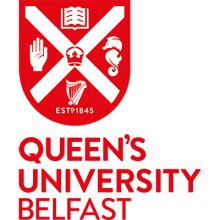The “significant” role of universities and academics in bringing peace to Northern Ireland was highlighted as the UK and Ireland marked the 25th anniversary of the Good Friday Agreement.
Queen’s University Belfast’s hosting of a major conference to mark the occasion has shown how politically neutral institutions are places where “communities are drawn together”, according to Richard English, director of the Senator George J. Mitchell Institute for Global Peace, Security and Justice.
Schools in Northern Ireland are still predominantly either Catholic or Protestant, so universities such as Queen’s have helped to bridge some of the country’s political and religious divides, he continued.
“In Northern Ireland, universities play an important role in terms of being the first place for most people where they are formally educated with someone from another community,” Professor English told Times Higher Education at the conference.
He said many Queen’s graduates had gone on to be involved in both the negotiations and the subsequent implementation of the Good Friday Agreement.
In addition, he noted the direct role played by academics, among them Paul Bew, professor of Irish politics at Queen’s, who served as an adviser to the leader of the Ulster Unionist Party Lord Trimble of Lisnagarvey, who became first minister in 1998.
Scholars also made vital contributions by explaining different aspects of the peace process in the media, Professor English added.
“I think a lot of that commentary was very important – it was at a very febrile time when people were rightly conscious of how their own political community thought but weren’t always hearing articulations from other people.”
At the time of the 1998 referendum, when citizens were asked whether they supported the Good Friday Agreement, the Queen’s department of politics hosted a public debate at which academics argued for and against the motion. Professor English said events such as this, and the recent conference, were useful in sustaining the momentum of the peace process.
“I hope that Queen’s has made a significant contribution to the peace process on occasions. I wouldn’t want to overstate it – it’s not as if it caused the peace process. But I think as one of many actors that contributed to it, I hope that it did some good,” he said.
The three-day summit featured talks by leading political figures from across the island of Ireland, as well as those from the UK and the US.
It was attended by many of the architects of the historic deal, including Bill Clinton, Sir Tony Blair and Bertie Ahern, along with George Mitchell, the pivotal US senator who chaired the negotiations in 1998.
Professor English said politically neutral spaces such as Queen’s were ideal hosts for such occasions because they were inclusive and did not espouse any particular ideology.
An academic setting provides the best environment for people to listen and engage, and universities have a history of defending a diversity of views, he said.
“In Northern Ireland, we know the cost of denying people a sense of legitimacy to what their views are, and the consequences of that have been really significant.
“People have got used to that idea that whatever their views, they should be able to express them and be able to be heard and have the right to disagree.”
Ian Greer, president and vice-chancellor of Queen’s, said he was “immensely proud” of the staff who organised the event, and hopes that it has helped move the dialogue forward.
The university said that the Agreement 25 event has already secured almost £14 million worth of media coverage across 49 different countries, and that it was expecting a return on its investment of £50 for every £1 spent.
POSTSCRIPT:
Print headline: Academy’s role in peace process highlighted
Register to continue
Why register?
- Registration is free and only takes a moment
- Once registered, you can read 3 articles a month
- Sign up for our newsletter
Subscribe
Or subscribe for unlimited access to:
- Unlimited access to news, views, insights & reviews
- Digital editions
- Digital access to THE’s university and college rankings analysis
Already registered or a current subscriber? Login










